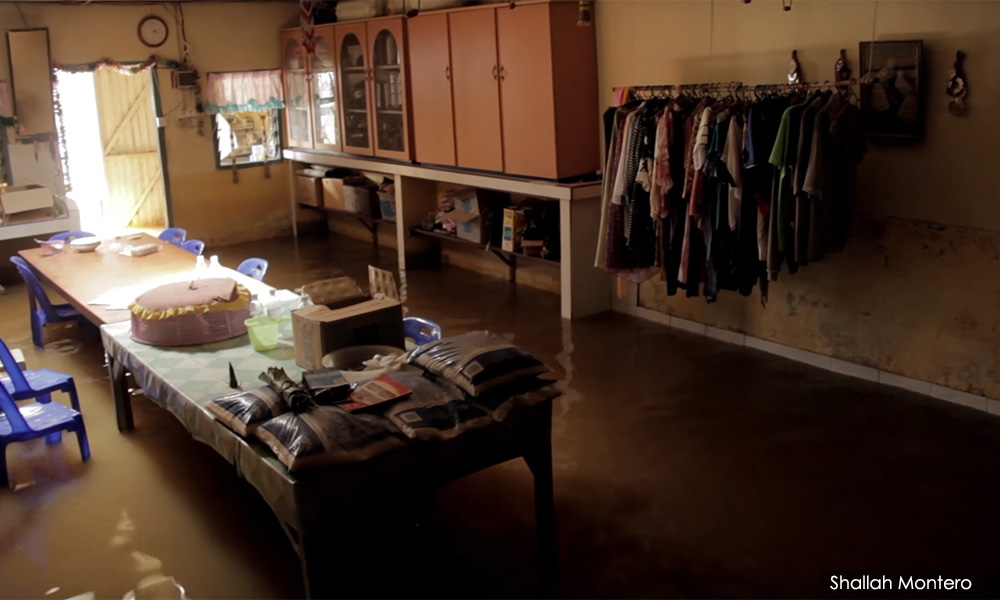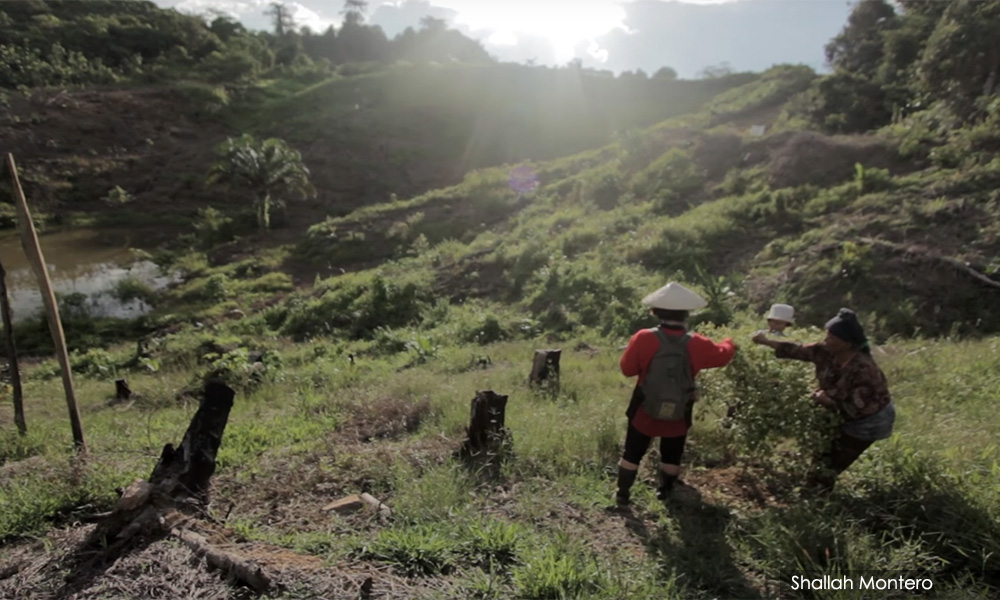In 2016, researchers reported that in Malaysia, climate disasters hit indigenous women and their dependents particularly hard. Left behind by their husbands who worked away from their villages, these women had to face the brunt of climate disasters affecting their home.
Now, five years later, the women’s plight has gone from bad to worse under the burden of the Covid-19 pandemic and continuous environmental destruction.
In the 2016 scoping study by the Asian-Pacific Resource and Research Centre for Women (Arrow) and the Penita Initiative titled ‘Climate Change and Sexual and Reproductive Health and Rights (SRHR)’, indigenous women shared their stories dealing with the aftermath of floods.
“I don’t have time to go farming. Because I do all of the chores by myself,” said Anna Ngau, a Kayan woman in Sarawak. Her husband worked away from their village. “Since I’m alone, it is so difficult to look for food and ration water. Now I am alone doing all the cleaning of the house from flooding.”

Uring Wan, another Kayan woman in Sarawak, had to care for her incapacitated husband with a limited supply of clean water and electricity. “I am so tired and my health is not so good now,” she said. “I am not healthy and I have to start the generator myself. I do all the heavy jobs myself.”
The increase in deforestation from human-driven activities (e.g. logging, dams) and climate disasters (e.g. floods, droughts) has worsened and continues to disproportionately affect Sarawakian indigenous women over the years.
One way climate disasters hurt women is by disrupting their access to sexual and reproductive health services (SRH). When health facilities are damaged or inaccessible, women would be deprived of services for maternal and child care or treatments for sexually transmitted infections. They would have no options for abortion, emergency contraception or even counselling.
The ongoing pandemic has further eroded reproductive health services for indigenous women, explains Sunitha Bisan, who led the 2016 study. Bisan is a consultant in integrating gender in environmental governance.
“It’s really difficult,” says Bisan, describing women who got pregnant and had to “give away their children because they could not afford to feed their children.”
Since the research was conducted in 2016, it has only worsened for indigenous women, says Hellan Empaing, a Miri-based indigenous women activist who worked on the study.
Because their forests and land were “impacted by climate change, most of the indigenous women migrated to the town to survive because they couldn't get any food security,” says Empaing. Only elders remain at the longhouses. “Those who still can walk prefer to come down to the urban area to get any jobs that they can do to survive.”
Empaing explains that the persistent flooding and droughts make it difficult for them to plant their crops. The village can be flooded “at least four to five times a year because of the river”, said Hellan Vitlyn, a social worker who participated in the research.
“It was easier back then for us to look for food,” said Bai Ngau, a Kayan woman in Sarawak, in the 2016 report, “[...] now the forest is being destroyed by logging companies.”

Food insecurity was further exacerbated by lockdown measures implemented during the pandemic last year. The indigenous community forage for “any foods they can manage to take” from the forest - some vegetables, small fishes – says Empaing.
At times, younger community members who work in town would pay for a four-wheel drive to deliver food. The need for permits to travel during the lockdown makes it more tedious.
“Especially when we want to visit our elders, those who are sick, or we want to bring some food for them, it's very hard,” says Empaing.
Gender-disaggregated data
Just like Empaing, Bisan is disappointed with the deteriorating situation afflicting indigenous women. She thinks it highlights the lack of emphasis on how policies affect genders differently – called gender mainstreaming - on all national issues, not just environmental.
Even though Malaysia has ratified the Paris Agreement, an international agreement on climate change within the United Nations Framework Convention on Climate Change (UNFCCC), “there is no mention of gender in Malaysia’s National Policy on Climate Change or Malaysia’s latest Biennial Update Reports submitted to UNFCCC in December 2020 on our progress,” explains Lim Hwei Mian, an independent consultant on climate change, gender and finance.
Bisan emphasises that gender-disaggregated data is necessary to distinguish how the climate crisis affects men and women differently. Without such data, policymakers are excluding women’s voices from developmental processes and not collecting the evidence to integrate gender-responsive policies into Malaysia’s climate mitigation and adaptation plans.
Bisan points out that “Malaysia has no gender focal point representative”, referring to the UNFCCC’s Gender Action Plan (GAP), adopted in 2019. The GAP aims to advance gender-responsive climate action and its mainstreaming in the implementation of the UNFCCC.
The 2019 Intergovernmental Panel on Climate Change (IPCC) report also advocates for gender-responsive climate mitigation and adaptation plans that are grounded in the lived realities of women and girls.
Even though indigenous women are disproportionately hit by the climate crisis, the 2016 Arrow study found that women were often left out of decision-making spaces for developmental processes. This phenomenon tallies with the lack of representation of women in leadership positions in governance: women make up only 5 out of the 32 cabinet ministers.
With the climate crisis worsening, if we do not integrate gender-responsive climate policies, the livelihoods of indigenous women will likely continue to deteriorate as they stand to lose more of their land, cultural heritage, and way of life. - Mkini
NICOLE FONG works on the intersections between climate justice, LGBTQ+ rights and feminist economics, towards campaigning Malaysia to declare a climate emergency.
The above article was originally produced as part of the ‘Panas! Climate Change Stories in Malaysia’ project organised by the Science Media Centre (SMC) Malaysia in collaboration with British High Commission Kuala Lumpur and EcoKnights.
The views expressed here are those of the author/contributor and do not necessarily represent the views of MMKtT.



No comments:
Post a Comment
Note: Only a member of this blog may post a comment.